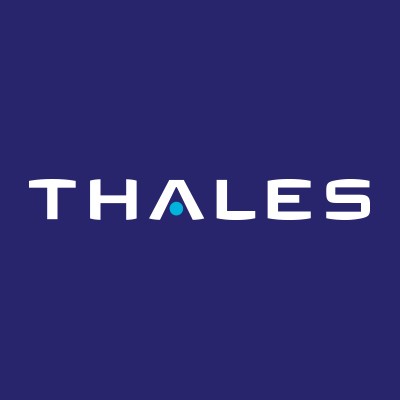European Satellite Alliance: Negotiations Continue, No Deal Yet
October 19, 2025, 10:22 pm
Europe's aerospace titans Thales, Airbus, and Leonardo are navigating complex talks. They aim to forge a unified European satellite manufacturing powerhouse. This mega-merger seeks to reshape global space industry dynamics. Recent media reports hinted at an imminent agreement. Thales swiftly countered. It confirmed no deal is finalized. Work continues. The proposed alliance carries monumental stakes. It promises enhanced competitiveness against global rivals. It secures critical strategic autonomy for Europe. The integration would consolidate significant defense and commercial space assets. Intense negotiations underscore the ambition. Hurdles remain substantial. The outcome will define Europe's future space leadership. Investors watch closely. Market forces push for clarity. This move represents a pivotal moment for advanced technology.
European aerospace faces a pivotal moment. A massive consolidation effort is underway. Thales, Airbus, and Italy's Leonardo are deep in discussions. They seek to create a new European satellite manufacturing giant. This alliance would reshape the global space industry.
Recent reports suggested an imminent agreement. German media indicated a deal was close. Thales, a key player, quickly issued a clarification. "No agreement has been reached at this stage," a Thales spokesperson stated. Work continues on the project. Further comment is premature.
This denial confirms the complexity of the negotiations. The stakes are incredibly high. A unified European satellite entity would wield significant power. It would challenge established global competitors. It would foster European strategic autonomy.
The proposed merger aims to combine vast resources. Thales Alenia Space is a joint venture between Thales and Leonardo. Airbus Defence and Space also holds significant satellite capabilities. Bringing these together creates an aerospace behemoth. This European satellite merger would impact defense, security, and commercial sectors.
The global space market is rapidly evolving. Low Earth Orbit (LEO) constellations are proliferating. Geostationary Orbit (GEO) satellites remain crucial. New players emerge constantly. Competition intensifies. Europe needs scale to compete effectively. This space industry consolidation is a strategic imperative.
Thales brings expertise in complex systems. Airbus offers broad aerospace manufacturing strength. Leonardo contributes critical defense technology. A combined entity could streamline innovation. It could optimize production. It could reduce costs. These synergies are vital for future success.
National interests always play a role. France, Germany, and Italy all have national champions. Each country seeks to protect its industrial base. Each desires a strong voice in future European space leadership. Balancing these interests is a delicate dance. Political considerations complicate the commercial logic.
The defense sector relies heavily on satellites. Surveillance, communication, and navigation depend on space assets. A strong European satellite provider enhances defense capabilities. It reduces reliance on non-European suppliers. This boosts national security. It ensures sovereign access to critical space technology.
Commercial space applications are booming. Broadband internet from space is expanding. Earth observation data is in high demand. Satellite services drive economic growth. A combined European entity could capture more of this expanding market. It could invest more in future technologies.
The path to agreement is fraught with challenges. Regulatory approvals are essential. Anti-trust bodies will scrutinize the deal. Integrating three major corporate cultures is difficult. Harmonizing research and development efforts takes time. Overcoming these hurdles requires strong commitment.
Investors watch closely. A successful merger could create substantial shareholder value. It could lead to increased market capitalization. It could attract more investment into the European space sector. Uncertainty, however, breeds caution. The denial of an immediate deal reflects this.
The timeline for a definitive agreement remains unclear. Negotiations are ongoing. Industry observers expect a protracted process. The ambition is clear: to create a world-class European satellite powerhouse. The execution, however, is complex.
Europe needs a unified front in space. Fragmented efforts weaken its global standing. This proposed alliance offers a solution. It promises greater efficiency. It promises enhanced competitiveness. It promises stronger strategic independence.
The outcome will resonate globally. It will impact procurement decisions worldwide. It will influence technological development. The future of European space manufacturing hinges on these talks. The global space market anticipates the results. This represents a monumental step for aerospace defense Europe.
European aerospace faces a pivotal moment. A massive consolidation effort is underway. Thales, Airbus, and Italy's Leonardo are deep in discussions. They seek to create a new European satellite manufacturing giant. This alliance would reshape the global space industry.
Recent reports suggested an imminent agreement. German media indicated a deal was close. Thales, a key player, quickly issued a clarification. "No agreement has been reached at this stage," a Thales spokesperson stated. Work continues on the project. Further comment is premature.
This denial confirms the complexity of the negotiations. The stakes are incredibly high. A unified European satellite entity would wield significant power. It would challenge established global competitors. It would foster European strategic autonomy.
The proposed merger aims to combine vast resources. Thales Alenia Space is a joint venture between Thales and Leonardo. Airbus Defence and Space also holds significant satellite capabilities. Bringing these together creates an aerospace behemoth. This European satellite merger would impact defense, security, and commercial sectors.
The global space market is rapidly evolving. Low Earth Orbit (LEO) constellations are proliferating. Geostationary Orbit (GEO) satellites remain crucial. New players emerge constantly. Competition intensifies. Europe needs scale to compete effectively. This space industry consolidation is a strategic imperative.
Thales brings expertise in complex systems. Airbus offers broad aerospace manufacturing strength. Leonardo contributes critical defense technology. A combined entity could streamline innovation. It could optimize production. It could reduce costs. These synergies are vital for future success.
National interests always play a role. France, Germany, and Italy all have national champions. Each country seeks to protect its industrial base. Each desires a strong voice in future European space leadership. Balancing these interests is a delicate dance. Political considerations complicate the commercial logic.
The defense sector relies heavily on satellites. Surveillance, communication, and navigation depend on space assets. A strong European satellite provider enhances defense capabilities. It reduces reliance on non-European suppliers. This boosts national security. It ensures sovereign access to critical space technology.
Commercial space applications are booming. Broadband internet from space is expanding. Earth observation data is in high demand. Satellite services drive economic growth. A combined European entity could capture more of this expanding market. It could invest more in future technologies.
The path to agreement is fraught with challenges. Regulatory approvals are essential. Anti-trust bodies will scrutinize the deal. Integrating three major corporate cultures is difficult. Harmonizing research and development efforts takes time. Overcoming these hurdles requires strong commitment.
Investors watch closely. A successful merger could create substantial shareholder value. It could lead to increased market capitalization. It could attract more investment into the European space sector. Uncertainty, however, breeds caution. The denial of an immediate deal reflects this.
The timeline for a definitive agreement remains unclear. Negotiations are ongoing. Industry observers expect a protracted process. The ambition is clear: to create a world-class European satellite powerhouse. The execution, however, is complex.
Europe needs a unified front in space. Fragmented efforts weaken its global standing. This proposed alliance offers a solution. It promises greater efficiency. It promises enhanced competitiveness. It promises stronger strategic independence.
The outcome will resonate globally. It will impact procurement decisions worldwide. It will influence technological development. The future of European space manufacturing hinges on these talks. The global space market anticipates the results. This represents a monumental step for aerospace defense Europe.

